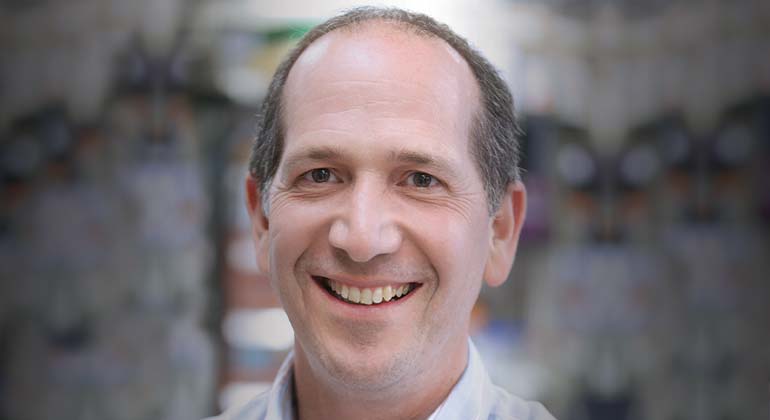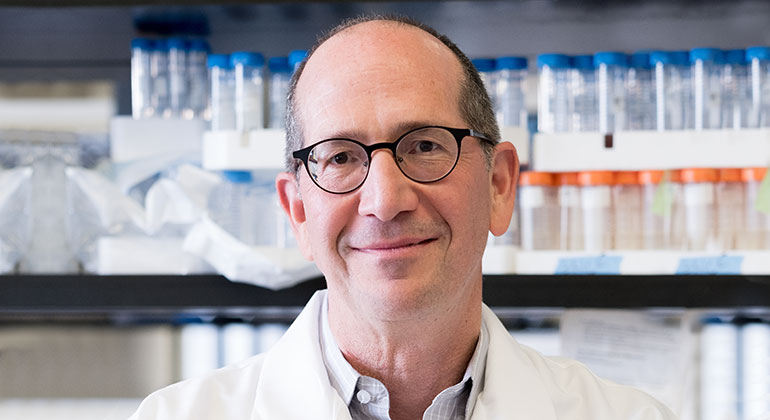Largest Autism Sequencing Study to Date Identifies 102 Genes Associated With the Condition

In the largest genetic sequencing study of autism spectrum disorder (ASD) to date, researchers have identified 102 genes associated with risk for autism. The study also shows significant progress towards teasing apart the genes associated with ASD from those associated with intellectual disability and developmental delay, conditions which often overlap. The study results are published online January 23 in the journal Cell.
For this study, an international team of researchers from more than 50 sites collected and analyzed more than 35,000 participant samples, including nearly 12,000 with ASD, the largest autism sequencing cohort to date. Using an enhanced analytic framework to integrate both rare, inherited genetic mutations and those occurring spontaneously when the egg or sperm are formed (de novo mutations), researchers identified the 102 genes associated with ASD risk. Of those genes, 49 were also associated with other developmental delays. The larger samples size of this study enabled the research team to increase the number of genes associated with ASD from 65 in 2015 to 102 today.
“This is a landmark study, both for its size and for the large international collaborative effort it required. With these identified genes we can begin to understand what brain changes underlie ASD and begin to consider novel treatment approaches,” said Joseph D. Buxbaum, PhD, Director of the Seaver Autism Center for Research and Treatment at Mount Sinai, and Professor of Psychiatry, Neuroscience, and Genetics and Genomic Sciences at the Icahn School of Medicine at Mount Sinai.
Obtaining such a large sample was made possible by the Autism Sequencing Consortium (ASC), an international group of scientists who share ASD samples and data. Co-founded by Dr. Buxbaum in 2010 and originally funded by the Beatrice and Samuel A. Seaver Foundation and the Seaver Autism Center for Research and Treatment at Mount Sinai, the ASC is now a multiple-Principal Investigator grant funded by the National Institute of Mental Health.
In addition to identifying subsets of the 102 ASD-associated genes that have disruptive de novo variants more often in people with developmental delays or those with ASD, the researchers showed that ASD genes impact brain development or function and that both types of disruptions can result in autism. They also found that both major classes of nerve cells—excitatory neurons, which trigger a positive and activating change in the downstream neuronal membrane upon firing, and inhibitory neurons, which trigger a negative change upon firing—can be affected in autism.
“Through our genetic analyses, we discovered that it’s not just one major class of cells implicated in autism, but rather that many disruptions in brain development and in neuronal function can lead to autism. It’s critically important that families of children with and without autism participate in genetic studies because genetic discoveries are the primary means to understanding the molecular, cellular, and systems-level underpinnings of autism,” said Dr. Buxbaum. “We now have specific, powerful tools that help us understand those underpinnings, and new drugs will be developed based on our newfound understanding of the molecular bases of autism.”
About the Seaver Autism Center for Research and Treatment
The Seaver Autism Center is one of the most recognized institutions of its kind in the world because of its ability to translate breakthroughs in the lab to clinical trials that bring cutting-edge treatment to individuals affected by autism spectrum disorder (ASD) and associated neurodevelopmental disorders. We offer compassionate care, including assessment and behavioral health services, to children and families, as well as educational and community outreach programs. Founded in 1993 and located at the Icahn School of Medicine at Mount Sinai, families come from around the world to seek our services and the expert counsel of our team of scientists, researchers and clinicians.
For more information, visit: www.seaverautismcenter.org, or find the Seaver Autism Center on Facebook, Twitter and Instagram.
About the Mount Sinai Health System
Mount Sinai Health System is one of the largest academic medical systems in the New York metro area, with 48,000 employees working across seven hospitals, more than 400 outpatient practices, more than 600 research and clinical labs, a school of nursing, and a leading school of medicine and graduate education. Mount Sinai advances health for all people, everywhere, by taking on the most complex health care challenges of our time—discovering and applying new scientific learning and knowledge; developing safer, more effective treatments; educating the next generation of medical leaders and innovators; and supporting local communities by delivering high-quality care to all who need it.
Through the integration of its hospitals, labs, and schools, Mount Sinai offers comprehensive health care solutions from birth through geriatrics, leveraging innovative approaches such as artificial intelligence and informatics while keeping patients’ medical and emotional needs at the center of all treatment. The Health System includes approximately 9,000 primary and specialty care physicians and 10 free-standing joint-venture centers throughout the five boroughs of New York City, Westchester, Long Island, and Florida. Hospitals within the System are consistently ranked by Newsweek’s® “The World’s Best Smart Hospitals, Best in State Hospitals, World Best Hospitals and Best Specialty Hospitals” and by U.S. News & World Report's® “Best Hospitals” and “Best Children’s Hospitals.” The Mount Sinai Hospital is on the U.S. News & World Report® “Best Hospitals” Honor Roll for 2025-2026.
For more information, visit https://www.mountsinai.org or find Mount Sinai on Facebook, Instagram, LinkedIn, X, and YouTube.
